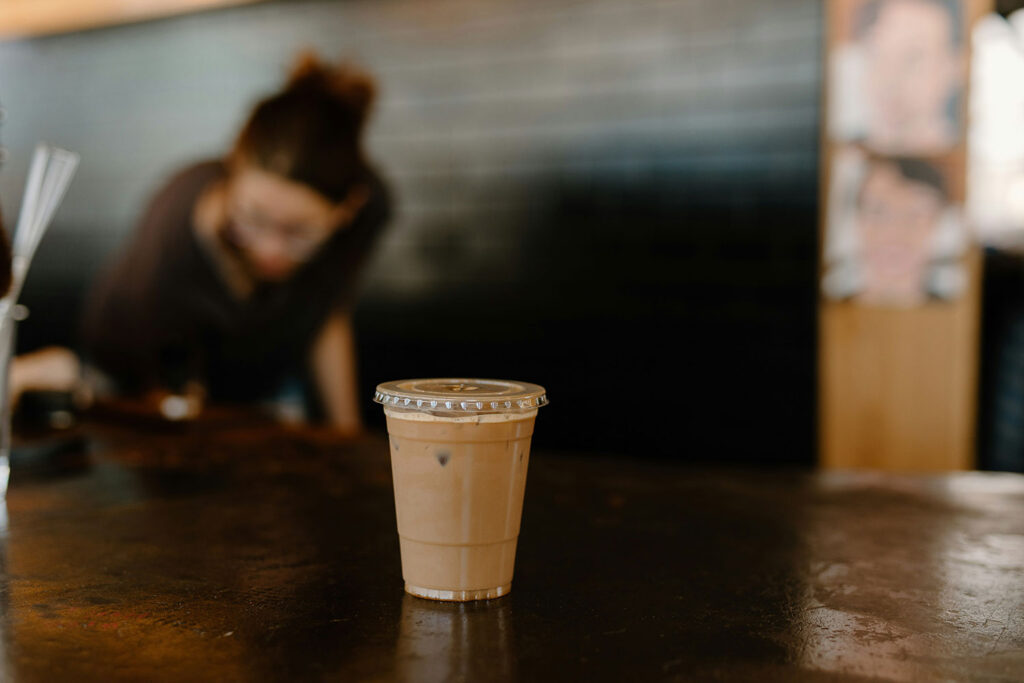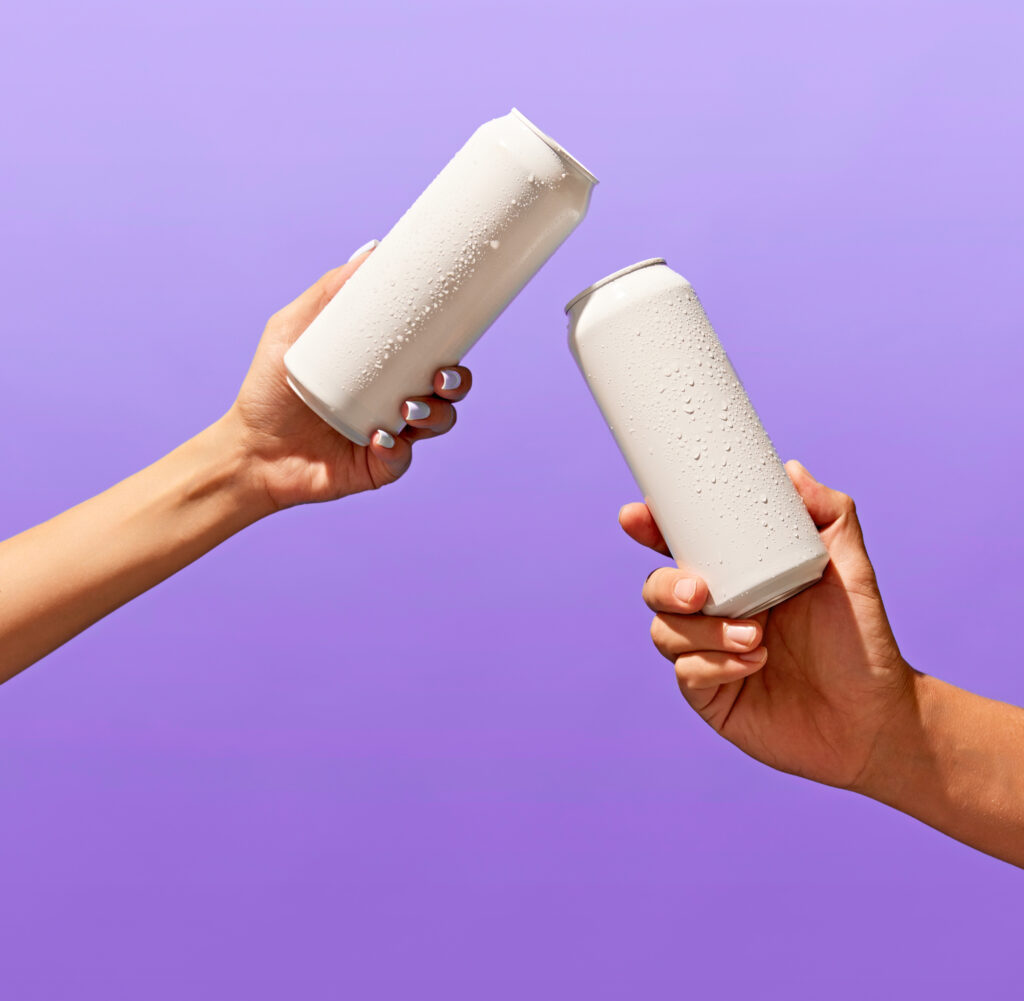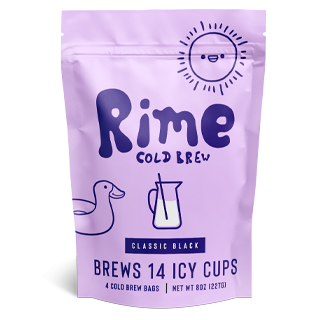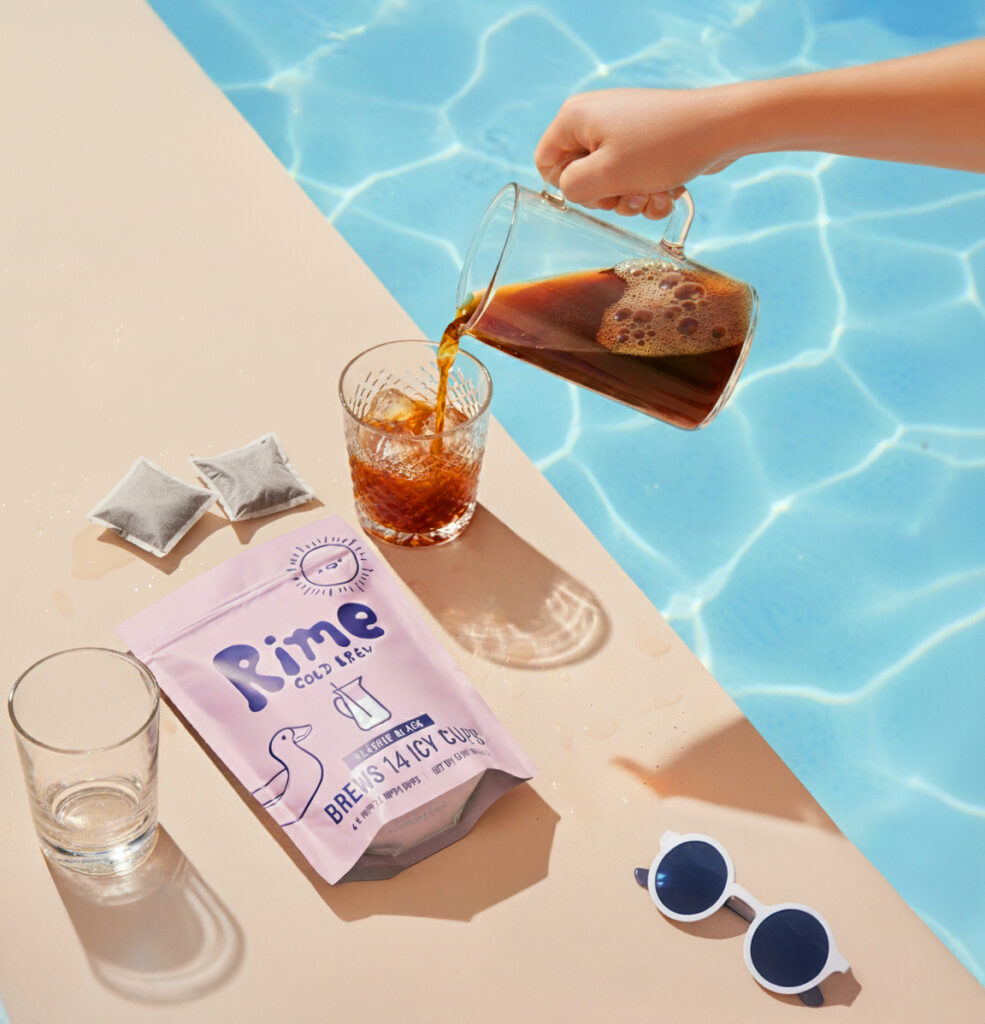Cold brew coffee has become a favorite among coffee lovers worldwide, however, one common question arises: does unopened cold brew go bad? The simple answer is yes, but it takes quite a while, especially if it is sealed and stored properly.
In this article, we’ll explore why unopened cold brew has a long shelf life, the factors affecting its longevity, and how you can ensure it stays fresh for as long as possible.
Along the way, we’ll address related topics like storage tips, signs of spoilage, and more.
Does Unopened Cold Brew Coffee Go Bad?
If you purchase unopened cold brew coffee from the store, you’re in luck: these products are often designed to last a long time.
Manufacturers seal them airtight and use pasteurization or other preservation methods to ensure extended freshness.
Shelf-stable cold brew, typically found in the unrefrigerated beverage aisle, can last for months, sometimes up to a year, as long as the seal remains intact.
These products will always come with an expiration date that applies to how long the cold brew will last before you open it.
In contrast, products found in the refrigerated section have a shorter shelf life, typically ranging from a few weeks to a few months, and must be kept cold even before opening.
Homemade cold brew, especially when stored unopened in an airtight container, can last up to 10–14 days in the refrigerator.
Shelf-stable cold brews are made to be resistant to spoilage through advanced preservation techniques like aseptic processing, which ensures that the beverage remains safe and fresh for extended periods.
Refrigerated cold brews, on the other hand, rely on maintaining low temperatures to slow bacterial growth, making proper storage critical.
For homemade cold brew, careful handling and immediate refrigeration can maximize its lifespan.
Cold brew kept at room temperature is always going to go bad faster than when it’s kept in the ideal conditions of your refrigerator.
Why Does Sealed Cold Brew Last So Long?
The longevity of unopened cold brew can be attributed to several factors.
First, the airtight sealing prevents oxygen from entering the container, which would otherwise accelerate spoilage through bacterial growth and oxidation.
Additionally, commercially produced cold brew is often pasteurized, a process that eliminates bacteria and extends shelf life. The lower acidity of cold brew compared to hot coffee also plays a role, as it inhibits the growth of certain bacteria and fungi.
It’s this pasteurization process that often makes packaged cold brew taste different, almost sour or bitter, when compared to making it fresh at home with a product like Rime Cold Brew coffee bags, or at a coffee shop like Starbucks.
Finally, proper storage conditions, such as keeping the product in a cool, dark environment, help maintain its freshness.
The science behind cold brew’s durability lies in its preparation method. Cold brewing extracts fewer volatile compounds compared to hot brewing, resulting in a beverage that is chemically stable for longer.
Furthermore, the absence of hot water preparation means fewer oils are released, reducing the risk of rancidity. Combined with modern packaging techniques like vacuum-sealing and nitrogen flushing, the shelf life of cold brew is now much longer.
The Best Way For Storing Unopened Cold Brew
To maximize the shelf life of unopened cold brew, it is essential to store it correctly. Follow these tips for the best results:
- Store in a Cool, Dark Place: Keep shelf-stable cold brew away from direct sunlight and heat sources. Excessive light and heat can degrade the flavor and quality of the brew.
- Maintain Consistent Temperatures: For refrigerated cold brew, ensure the fridge stays at a steady temperature, ideally around 4°C or 39°F.
- Avoid Frequent Temperature Changes: Don’t move cold brew between warm and cold environments, as temperature fluctuations can affect freshness.
- Keep the Seal Intact: For unopened products, never break the seal unless you are ready to consume them. The airtight seal is critical to maintaining freshness.
- Check Expiration Dates: This is your best option. Always refer to the expiration or best-before date provided by the manufacturer for guidance.
- Use Airtight Containers: When transferring cold brew into storage, ensure you use an airtight container to minimize exposure to air.
- Avoid Overfilling Containers: Leave a small gap in the container to prevent spills and allow for slight expansion without compromising the seal.
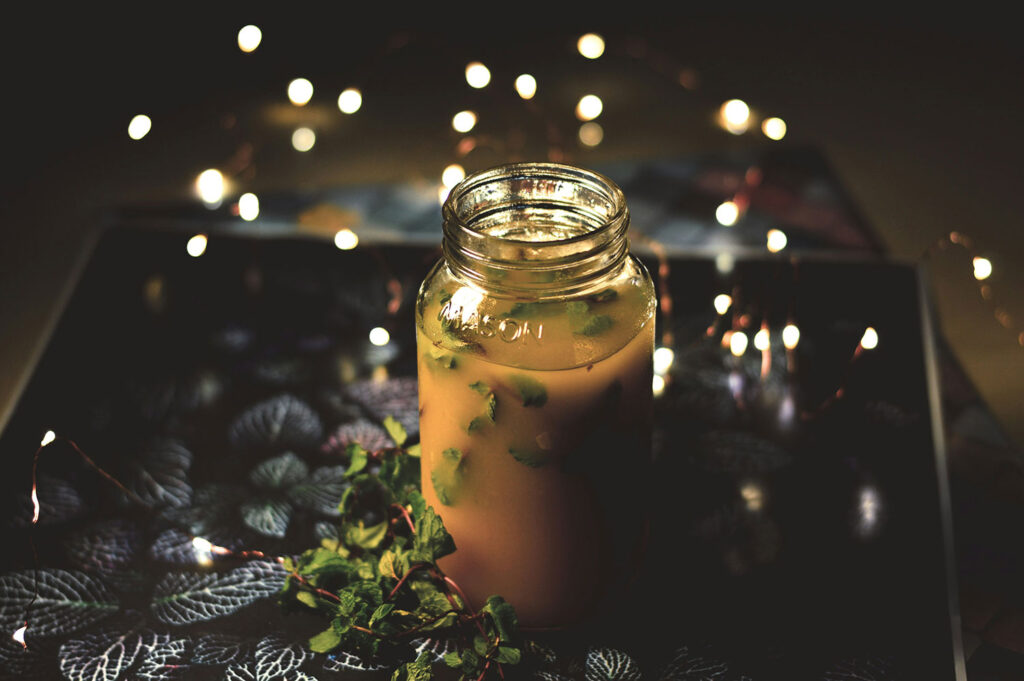
Best Containers for Storing Cold Brew
Choosing the right container is crucial for maintaining the freshness of your cold brew. Here’s a detailed look at the best options:
- Glass Mason Jars: Glass jars are ideal for storing cold brew as they are airtight, non-reactive, and do not retain odors. They also provide a clear view of the contents, making it easy to check for any signs of spoilage.
- Stainless Steel Bottles: Stainless steel is an excellent choice for preserving flavor and preventing oxidation. These bottles are durable, reusable, and often come with insulated options to keep your cold brew at the desired temperature.
- Plastic BPA-Free Containers: While plastic containers are lightweight and convenient, ensure they are BPA-free to avoid chemical leaching. Plastic is more prone to retaining odors compared to glass or stainless steel.
- Cold Brew Pitchers: Designed specifically for brewing and storing cold brew, these pitchers often include built-in filters, making them a convenient option for both preparation and storage.
- Airtight Containers: For those serious about freshness, vacuum-sealed containers remove air entirely, significantly slowing down oxidation and extending the shelf life of your cold brew.
- Ceramic Canisters: These provide an aesthetically pleasing option while offering excellent protection from light exposure. Ensure the lid seals tightly to maintain freshness.
Recognizing When Cold Brew Goes Bad
Even unopened cold brew can eventually go bad if stored improperly or kept for too long.
The first indicator is an unpleasant smell, which might be sour, rancid, or “off” compared to the rich aroma of fresh coffee.
Another sign is changes in texture, such as the liquid becoming unusually thick, slimy, or separating into distinct layers. Visible mold inside the container or on the cap is a definitive sign to discard the product.
Finally, if the taste is bitter, sour, or otherwise unpleasant, it’s no longer safe to consume.
It’s also important to check for packaging issues. A bloated or leaking container is a clear warning that the product has undergone spoilage due to gas buildup from microbial activity.
When in doubt, it’s always better to err on the side of caution.
Prolonging the Freshness of Homemade Cold Brew
For those who enjoy making cold brew at home, there are steps you can take to ensure it stays fresh longer and retains the best taste. Here are some detailed tips:
- Use Airtight Containers: Store your cold brew in containers that prevent air exposure. Glass jars or stainless steel bottles are highly recommended.
- Filter Thoroughly: Ensure that all coffee grounds are removed after brewing. Residual grounds can continue to extract and alter the flavor over time.
- Refrigerate Immediately: Once the brewing process is complete, place the cold brew in the refrigerator to maintain its freshness and prevent bacterial growth.
- Avoid Adding Extras Early: Keep your cold brew black until you’re ready to drink it. Additions like milk or sweeteners can shorten its shelf life.
- Clean Storage Containers Regularly: Make sure the containers are properly cleaned before each use to prevent any contamination from previous batches.
- Label Your Brew: Write the preparation date on the container so you can keep track of how long it has been stored.
- Use Fresh Ingredients: Start with freshly ground coffee beans or whole beans for the best results. Using stale or old coffee can impact the flavor and shorten the brew’s longevity.
- Experiment with French Presses: A French press can serve as both a brewing tool and temporary storage solution for cold brew concentrate, provided it is transferred to an airtight container afterward.
- Avoid Mixing with Instant Coffee: While instant coffee offers convenience, combining it with cold brew can degrade the flavor and consistency over time.
Cold Brew vs. Iced Coffee
It’s important to note the difference between cold brew and iced coffee, as they have distinct preparation methods and storage needs.
Cold brew is made by steeping ground coffee beans in cold water for an extended period, resulting in a smoother, less acidic flavor.
Iced coffee, on the other hand, is typically brewed hot and then cooled, which can make it more acidic and quicker to spoil.
Cold brew concentrate has a longer shelf life compared to iced coffee, especially when stored in airtight containers.
What Happens if You Drink Expired Cold Brew?
It’s tempting to sip cold brew past its expiration date, especially if it looks and smells fine. For store-bought cold brew, if it’s only a few days past the expiration date and shows no signs of spoilage, it might still be safe but could taste stale.
With homemade cold brew, it’s better to err on the side of caution and discard any batch older than two weeks, even if it seems okay.
Consuming expired cold brew carries some risks, including digestive discomfort or mild food poisoning if bacteria have begun to grow. While the risk is low for properly stored cold brew, it’s better to avoid unnecessary risks and enjoy a fresh batch instead.
The Science Behind Cold Brew’s Longevity
Cold brew’s shelf life owes much to its unique brewing process.
Unlike hot coffee, which extracts compounds quickly, cold brewing uses cold water to extract flavor over a longer period (12–24 hours). This method reduces the extraction of volatile oils and acids that degrade quickly and minimizes the risk of bacterial growth during brewing due to the lower temperatures involved.
Cold brew’s chemical composition is inherently stable due to lower acidity and the lack of heat-induced byproducts. This makes it less prone to rapid spoilage compared to traditional coffee.
Industrial producers enhance this stability by using high-tech packaging techniques, including nitrogen flushing, which removes oxygen and further extends shelf life.
More Answers: Does Unopened Cold Brew Go Bad?
- How Can I Tell If My Unopened Cold Brew Is Shelf-Stable?Check the packaging. Shelf-stable cold brew is usually labeled as such and does not require refrigeration until opened.
- Why Does My Cold Brew Have Sediment?Sediment is normal for cold brew, especially homemade varieties. It’s caused by fine coffee particles that pass through the filter. It doesn’t affect safety but can be filtered out if desired.
- Can I Store Cold Brew in a Plastic Bottle?Yes, but opt for BPA-free containers to avoid chemical leaching. Glass bottles are a better option for preserving flavor and quality.
- What’s the Best Coffee for Making Cold Brew?Choose medium-to-coarse ground coffee for optimal flavor extraction. Specialty coffee beans or blends labeled for cold brewing are ideal.
- Can I Freeze Cold Brew?While it’s possible to freeze cold brew, it’s not recommended as it can alter the flavor and texture. It’s better to refrigerate and consume within the recommended time frame.
- What’s the Best Way to Reheat Cold Brew?If you prefer your cold brew warm, gently heat it on the stovetop over low heat to preserve its flavor. Avoid microwaving, as this can cause uneven heating and degrade the taste.
In Conclusion
- Unopened cold brew can last for weeks or months, depending on whether it’s shelf-stable or refrigerated.
- Proper storage is crucial. Keep shelf-stable cold brew at room temperature away from sunlight, and always refrigerate refrigerated cold brew.
- Use airtight containers like glass mason jars, stainless steel bottles, or vacuum-sealed options to prolong freshness.
- Recognize signs of spoilage such as an unpleasant smell, changes in texture, or visible mold.
- Homemade cold brew lasts up to 14 days in the refrigerator if stored properly.
- Whole beans or freshly ground coffee are essential for high-quality cold brew.
- French presses are useful for cold brew preparation but should not be relied on for long-term storage.
- Cold brew concentrate offers greater versatility and a longer shelf life than standard iced coffee.
- Avoid mixing cold brew with instant coffee, as it can negatively affect flavor and shelf life.
- Rely on your senses and discard any cold brew that smells, looks, or tastes off.
By following these tips and guidelines, you can enjoy fresh, flavorful cold brew at any time.
Whether you’re buying store-bought products or brewing your own, a little care goes a long way in preserving that perfect cup of coffee.
